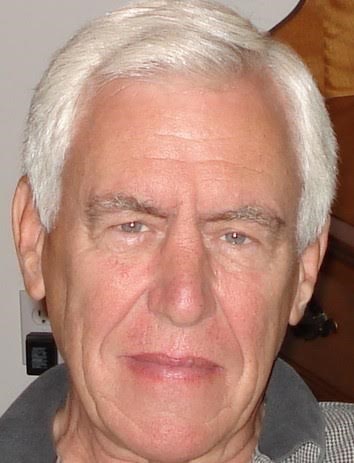 Life is ambiguous—two-sided-- positive and negative always together. Every human being is ambiguous, including ourselves. Nobody is perfect. Nobody is totally bad. How best to cope with this ambiguity?
Life is ambiguous—two-sided-- positive and negative always together. Every human being is ambiguous, including ourselves. Nobody is perfect. Nobody is totally bad. How best to cope with this ambiguity?
One questionable way has been called the romantic-cynical syndrome. With this syndrome one is overly positive about the people or things we like and overly negative about the things or people we don’t like. That approach is harmful because it is not true. It does not do justice either to whom we like or whom we do not like. This is clearly the case when one has an overly negative or positive estimate of oneself. The overly positive view of self is narcissistic self-love that results in mistreatment or neglect of others. The overly negative view of self can cripple the confidence and happiness that one should have for healthy living. Some people struggle with low self-image all their lives.
The Bible provides a view of people that can replace the romantic-cynical syndrome. The Bible tells of people being made from dust and returning to dust when they die. Dust does not suggest anything especially glorious. At the same time the Bible claims that people are made in the image of God, the Creator who lives within and beyond every single human being. People can have more or less of the image of God but they are not without it –never totally negative or totally positive. Jesus certainly treated people with respect, even those generally despised. He never gave up the possibility that they could be restored to goodness. Think of Mary Magdalene or Zacchaeus or the woman caught in adultery.
There is a folk saying that reflects this view of people and our ambiguity. It says “God can hit straight with a crooked stick.” That little reminder can be very useful when we are tempted to have overly negative feelings about others or ourselves. We do not give up hope for good results from ourselves or others because God can hit straight with a crooked stick, and sometimes the stick looks pretty “crooked”, pretty unpromising.
As a part of hope we can recognize that there is much more goodness in creation than evil. Our scriptures and faith traditions affirm it. So does objective assessment of the universe as we know it. The intelligence, benevolence and beauty in creation is astounding and awesome. Evil is basically parasitic, a fragmentary distortion of the prevailing goodness of creation. It is not a unified destructive agent, a second deity. There is only one God, one Creative Spirit in the universe and that One can hit straight with crooked sticks.
Hope is possible because evil can be removed in the good creation as we join with each other and the Creator Spirit to repair the broken systems and places and people, including ourselves. A famous Rabbi, Abraham Heschel, suggested that every morning the Creator wakes up and says “Where does my world need mending today?” The United Church of Canada issued a report entitled Mending The World saying this was the primary mission of the Church. It is the goal of most human beings in one way or another. Ambiguity and its destructions are certainly real. But the positive resolve of people with hope can help realize the goodness of the Creator’s intentions.
 Paul Newman is a retired minister in The United Church of Canada. He is author of Humanity and Spirit: Reasons for Hope andA spirit Christology: Recovering the Biblical Paradigm of Christian Faith.
Paul Newman is a retired minister in The United Church of Canada. He is author of Humanity and Spirit: Reasons for Hope andA spirit Christology: Recovering the Biblical Paradigm of Christian Faith.
You can read more articles on our interfaith blog, Spiritually Speaking, HERE


